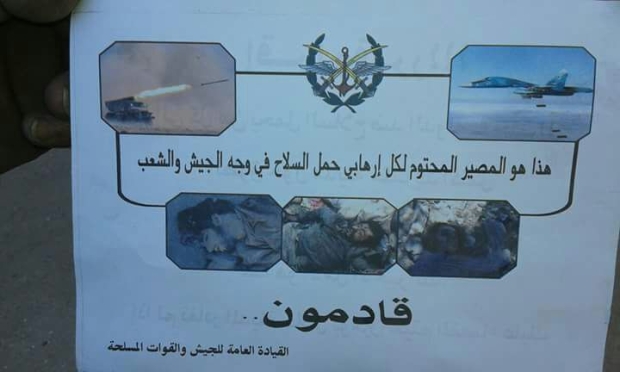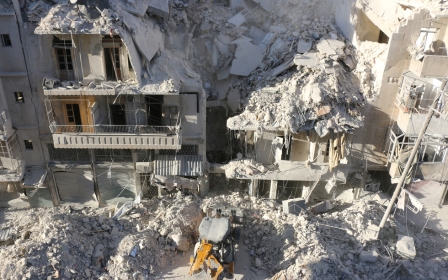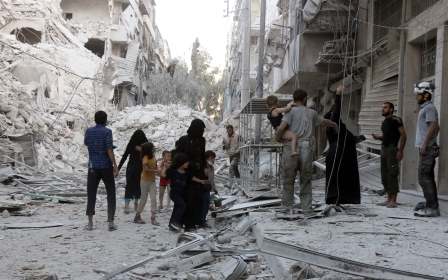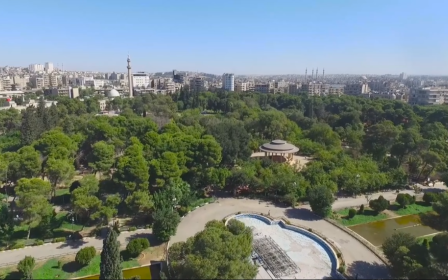Aleppo facing 'total destruction', UN envoy warns
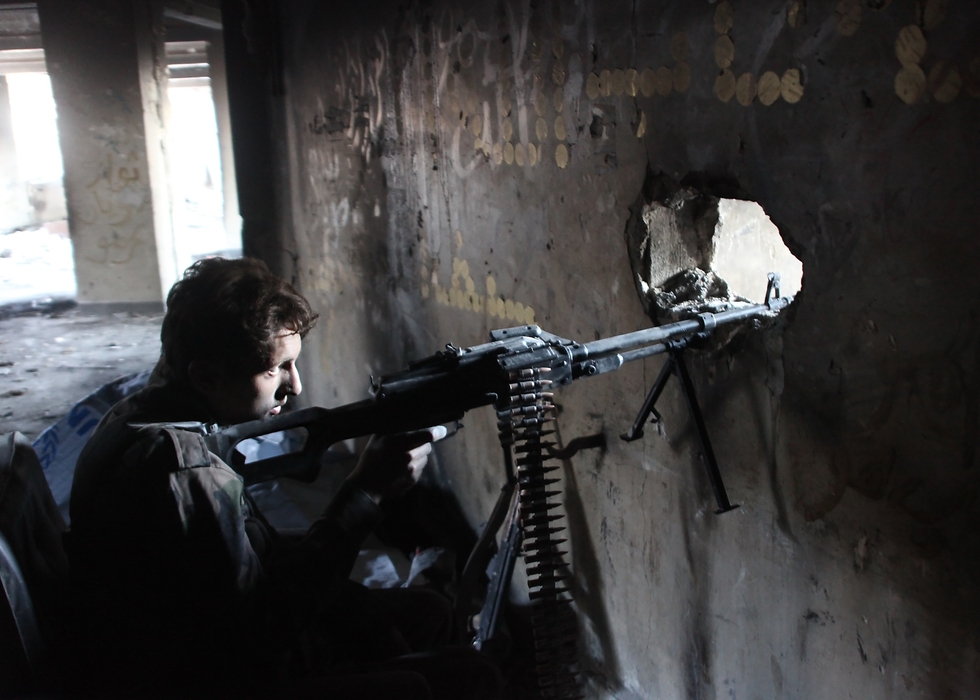
Syrian forces advanced against rebels in Aleppo on Thursday, reportedly making their biggest gains in years as the UN envoy to Syria warned eastern areas of the city faced total destruction within months.
The Syrian Observatory for Human Rights said loyalist fighters now controlled about half of the Bustan al-Basha district near the centre of the city.
"It's the most important advance for the regime in Aleppo since 2013," said Observatory director Rami Abdel Rahman.
The reports came as the UN envoy to Syria, Staffan de Mistura, warned "in [a] maximum two months, two and a half months, the city of eastern Aleppo at this rate may be totally destroyed".
De Mistura offered to escort fighters belonging to Fateh al-Sham out of the rebel-held areas of the city.
He said fighters from the group, "If you decide to leave in dignity and with your weapons... I personally am ready physically to accompany you."
Fateh al-Sham recently cut its links with al-Qaeda and changed its name from the Nusra Front. World powers do not recognise the rebranding, and Russia and the Syrian government use the group's presence in Aleppo as proof all rebel groups are "terrorist".
The government two weeks ago launched operations to recapture the rebel-held east of the city following the collapse of a short-lived truce negotiated by Russia and the United States.
The assault has seen rebel-held areas pounded relentlessly with air strikes, barrel bombs and artillery fire that have killed more than 270 people, according to the Observatory.
On Wednesday, the army said in a surprise announcement it would reduce its bombardment "after the success of our armed forces in Aleppo and cutting off all terrorist supply routes into the eastern districts".
"The military command has decided to reduce the number of air and artillery strikes on terrorist positions to allow civilians who want to leave to reach safe areas," a statement said.
"Anyone who does not take advantage of the opportunity to lay down their arms or leave will meet their inevitable fate," it added.
The Observatory said there had been fewer air strikes on Thursday, but that heavy clashes were under way in Bustan al-Basha, with the army now controlling several key vantage points and half of the district.
Activists in eastern Aleppo told Middle East Eye that government helicopters had begun dropping leaflets warning rebels of their imminent deaths.
“This is the inevitable fate for every terrorist carrying weapons and pointing it to the people and the army. We are coming. The general command and armed forces."
PR 'gimmick'
Analysts dismissed the army's announcement of a reduction in its bombardment as as a "PR gimmick".
"The regime and its allies have made a decision to conquer as much of eastern Aleppo as possible and they're moving ahead on that," said Emile Hokayem, a senior fellow at the International Institute for Strategic Studies.
"I think such announcements are actually marginal. They are a PR gimmick."
Syria expert Thomas Pierret said the move could be intended to undercut growing international pressure for action over the plight of civilians in east Aleppo, which UN chief Ban Ki-moon has described as worse than "a slaughterhouse."
The bombardment has damaged or destroyed several hospitals, including the largest facility serving the estimated 250,000 remaining residents, who have been under near-continuous siege since mid-July.
"The aerial onslaught on Aleppo... has bolstered Western proponents of a tougher approach" on Syria, said Pierret, a lecturer at the University of Edinburgh.
"A temporary halt or reduction of bombings could prevent interventionists from gaining further influence."
Washington responded to the bombing campaign by announcing early this week that it would suspend bilateral talks with Moscow on reviving the failed ceasefire.
'Engagement remains'
But the US State Department acknowledged on Wednesday that Secretary of State John Kerry had called his Russian counterpart Sergei Lavrov to discuss Syria despite the announcement.
"Engagement remains," US State Department spokesman Mark Toner said.
"What we talked about the other day was bilateral engagement with regard to Syria. That remains suspended, but it doesn't preclude the secretary of state and Foreign Minister Lavrov from talking."
Moscow has said the "responsibility for the collapse of the truce lies with the US" and has shown no signs of easing its support for Assad, more than a year into its military intervention in Syria.
French Foreign Minister Jean-Marc Ayrault was to travel to Moscow on Thursday and Washington on Friday to try to garner support for a UN resolution on a ceasefire for Aleppo, his office said.
More than 300,000 people have been killed since the conflict began with fierce repression of anti-government protests in March 2011.
It has since evolved into a complex multi-front war that has drawn in regional and international forces including, most recently, Turkey.
Ankara launched its Operation Euphrates Shield on 24 August, saying its forces and allied Syrian rebels would fight both the Islamic State group and Kurdish militia in northern Syria.
On Thursday, at least 29 rebels involved in Ankara's operation were killed in a blast claimed by IS at the Atme border crossing between Turkey and Syria, the Observatory said.
It was the second deadly attack against rebels at the crossing in recent weeks.
At least 32 were killed in an August suicide attack there that was also claimed by IS.
New MEE newsletter: Jerusalem Dispatch
Sign up to get the latest insights and analysis on Israel-Palestine, alongside Turkey Unpacked and other MEE newsletters
Middle East Eye delivers independent and unrivalled coverage and analysis of the Middle East, North Africa and beyond. To learn more about republishing this content and the associated fees, please fill out this form. More about MEE can be found here.


